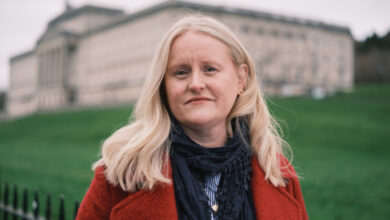Policy Exchange: small scale reform and transformation
 Small-scale reform can lead to widespread transformation of a criminal justice system according to Policy Exchange. agendaNi examines its analysis of UK and US pilot projects.
Small-scale reform can lead to widespread transformation of a criminal justice system according to Policy Exchange. agendaNi examines its analysis of UK and US pilot projects.
Rather than large-scale structural changes to the criminal justice system, small-scale pilot projects responding to specific, local, criminal justice problems can be innovative and can provide a basis on which justice policy-makers can build over time. That is the view in Policy Exchange’s report called: ‘From the Ground Up: promising criminal justice projects in the US and the UK’.
Looking at 10 successful small-scale projects across Britain and the United States, the report argues that pilot projects are an “important tool” for both policy-makers and practitioners. “New approaches to preventing crime depend upon imagination, experimentation, and robust evaluation,” it states.
A localised approach will “create new understanding,” thereby providing policy-makers with “more and better evidence to effect change more widely.”
The authors note that it is currently a challenging time for criminal justice policy-makers in England and Wales who must cut expenditure, reduce crime and improve levels of public confidence in justice, while dealing with demands arising from events such as the August riots.
Pilot projects are unique because they can originate from police, prosecutors, probation and parole staff, judges, pre-trial agencies, community groups, corrections departments and sometimes “dynamic local citizens,” the paper notes.
Successful projects cited in the paper include the Neighbourhood Opportunity Network (NeON), where the New York City Department of Probation plans to open satellite offices in five neighbourhoods with high crime rates “in partnership” with community organisations in order to offer enhanced mentoring, education, and job training services to young black and Hispanic men under probation supervision. The city’s Mayor Michael Bloomberg made a $30 million personal contribution.
The paper states that few pilot projects receive that amount of funding or publicity and that it is imperative that planners think about important building blocks such as obtaining local support for their efforts or customising projects to meet local conditions. They must also focus on “solvable problems” by “combing through data and doing extensive analysis to make sure they are getting the facts right.”
The Save Our Streets (SOS) programme in Crown Heights, Brooklyn, was set up after Crown Heights Community Mediation Centre heard that a local woman whose son had been shot and killed was going from door to door, asking for help to deal with the community’s violence problem. It employs ex-offenders as ‘violence interrupters’ who work to calm conflict before it escalates out of control and receives funding from the United States Department of Justice. It was replicated in Chicago’s ‘CeaseFire’ project.
A former detective and a psychologist run Scotland’s Violence Reduction Unit (VRU) which is formally attached to Strathclyde Police but has a national mission to investigate, and propose solutions to, the causes of violence in Scotland. The unit has seen a 50 per cent reduction in violent crime among gang members who took part in the programme and was held up as an example by David Cameron during the summer riots. In order to tackle repeat offences due to alcohol, the VRU requires that problem drinkers about to be released from prison or domestic violence offenders be fitted with a bracelet that detects any intake of alcohol, triggering an alarm and resulting in sanctions being imposed on the offender.
IMPACT was launched by local probation officers, Avon and Somerset Police and the Bristol City Council in 2008. It set out to supervise 800 high-risk offenders who were considered most likely to commit frequent and serious crime. If an offender missed probation, they were sent a letter and would receive an immediate follow-up visit from a police officer reinforcing the warning. This approach demonstrates “unwavering attention to the details” and value of going through a process of trial and error to improve a project, the paper states.
The key lessons are to start small, take your time, try to find a high-profile individual to champion your project, remain apolitical in order to survive, use hard facts and in-depth research, stay focused on where the project can make the most impact, and don’t take funding for granted.
Report sponsored by G4S





